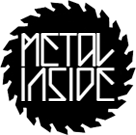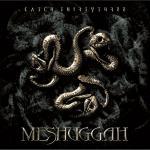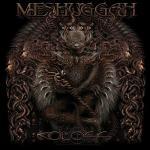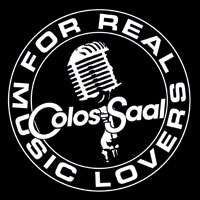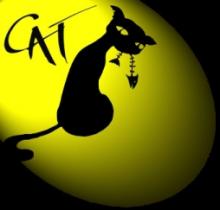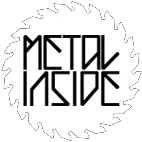Man, ist es wirklich schon zehn Jahre her, dass ich vo "Destroy Erase Improve” beeindruckt wurde?
Band:
BiografieFormed in 1987 in Umeå, Sweden, Meshuggah have gone on to be called “one of the ten most important hard and heavy bands” by Rolling Stone and have earned the respect and admiration from fans and musicians alike. The long journey from Sweden to Ozzfest began with their first release, usually referred to as Psykisk Testbild (roughly translated as “Psychological Test Picture”) even though it really has no title. Like their music, much of Meshuggah’s early history remains an enigma, but vocalist/guitarist Jens Kidman, guitarist Fredrik Thordendal and bassist Peter Nordin hammered out this vinyl-only release sometime around 1989. It has since become the “Holy Grail” for dedicated Meshuggah fans, as only 1,000 copies were pressed. The band jokes that its inclusion on their 2001 release, Rare Trax, is likely to “stir up some pretty ugly feelings in the few lucky bastards owning an original vinyl copy since it’s now been rendered completely worthless.” Such is the humor of these Swedish speedballs. Drummer Tomas Haake joined shortly after, and the band began writing for their first full-length release, Contradictions Collapse.Meshuggah
A period of flux followed. Kidman put down the guitar to focus solely on his vocals, and Haake’s school chum Mårten Hagström joined. The band followed up Contradictions Collapse with two EPs (None and the now out-of-print Selfcaged), but it wasn’t until the release of Destroy, Erase, Improve (the infamous album that Jack Osbourne assaulted his neighbors with in an episode of The Osbournes) that the world stood up and took notice. A two-month European tour with Machine Head established Meshuggah as a live presence, and two separate tours later that fall (with Clawfinger and Hypocrisy respectfully) solidified their superiority. Nordin left before the Clawfinger tour, and the band played several shows without a bass player before Gustaf Hielm (ex-Charta 77) joined at a gig in Hamburg, Germany.
Meshuggah followed up Destroy, Erase, Improve with the EP True Human Design. The next true album by the band, however, was the monumental 1998 release Chaosphere. The phenomenal response led to Meshuggah’s first performance in America at the Milwaukee Metalfest, followed by a national tour with thrash titans Slayer. After the tour, Meshuggah left the public eye to concentrate on new material and their personal lives. They emerged again in early 2001 to headline the sold-out New England Metal and Hardcore Festival in Worcester, MA and release the aforementioned collection of rarities, Rare Trax. The band repeatedly turned down tour offers throughout 2001 in order to concentrate on creating the next album; however, they couldn’t refuse an offer extended personally by Tool. The two dynamically different bands embarked on an eleven-date arena tour that brought the complex aggression of Meshuggah to a whole new audience.
Again the band returned to seclusion to finish the new record, until they once again received an offer they couldn’t refuse. The band landed a spot on possibly the most coveted tour every year: OZZFEST (juggling dates with System of a Down, P.O.D., Down and Mushroomhead on the off days). The band spent the months leading up the festival spending every waking moment working on nothing… literally. On May 16, 2002, they entered Dug-Out Studios with Daniel Bergstrand (Stuck Mojo, In Flames) to lay down drum tracks. Once complete, the band moved into Area 51 and Fear and Loathing studios to finish guitars, bass and vocals. The most intense six weeks of the band’s professional and personal lives resulted in Nothing. After the mathematical confusion (precision?) caused by Chaosphere, the band offers up a more straightforward approach and created the heaviest album of their career. Thordendal’s and Hagström’s unique, custom-made eight (yes, EIGHT) string guitars create a sinister sound like nothing you’ve ever heard, and Haake’s trademark precision and Kidman’s distinct growl anchor the music and let longtime fans know that even though the stages have gotten bigger, the music is still pure underground.Quelle: www.nuclearblast.deDiscografie1991 Meshuggah MLP
1991 Contradictions Collapse CD
1994 None CD
1995 Selfcaged MCD
1995 Destroy Erase Improve CD
1996 True Human Design MCD
1998 Chaosphere CD
2001 Rare Tracks CD
2002 Nothing CD
www
Reviews
MESHUGGAH haben sich für „Koloss” nicht nur viel Zeit gelassen (die Schnellsten waren sie sowieso noch nie), sondern auch den perfekten Plattentitel gefunden, denn was ist eine MESHUGGAH-P
